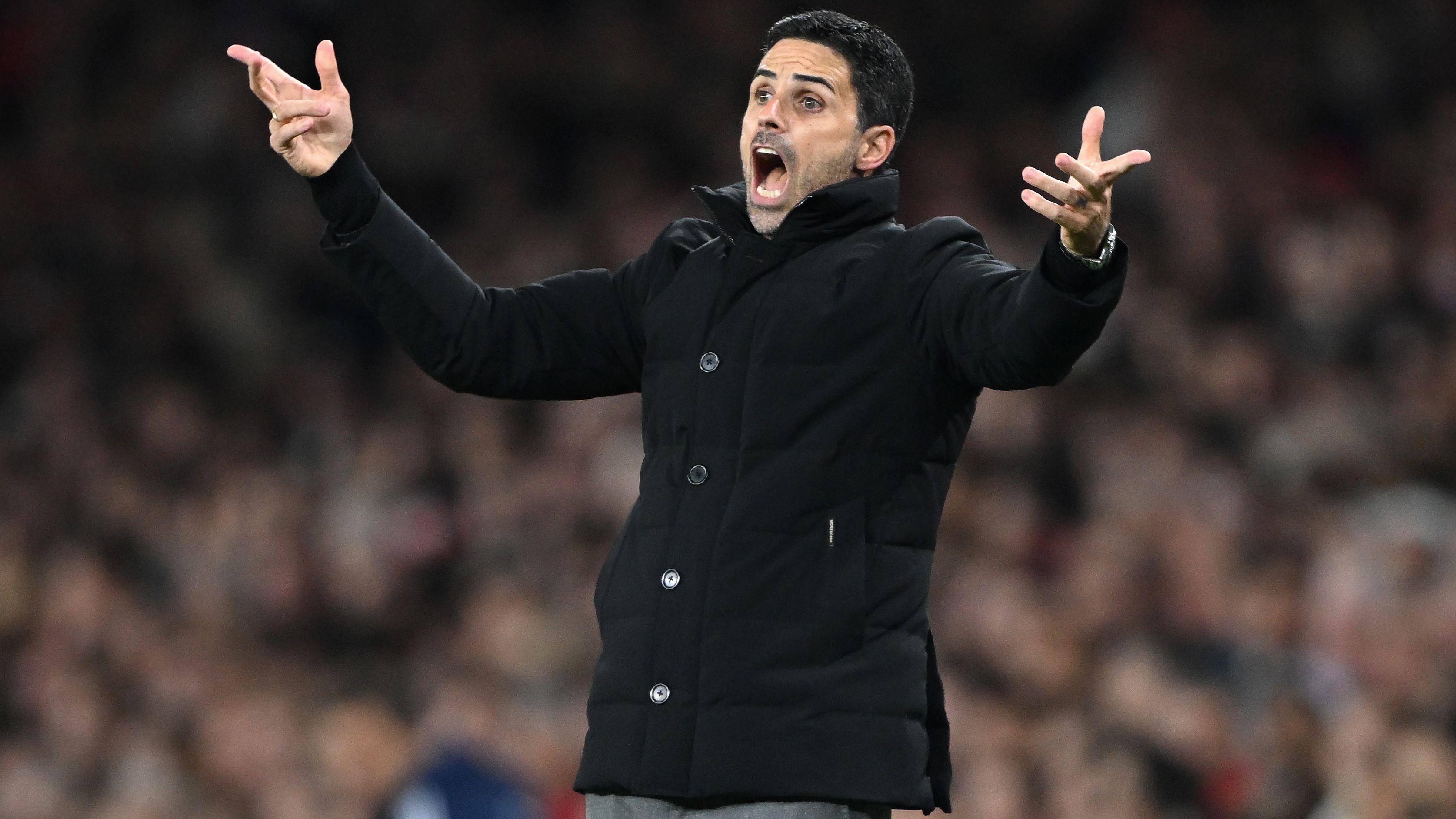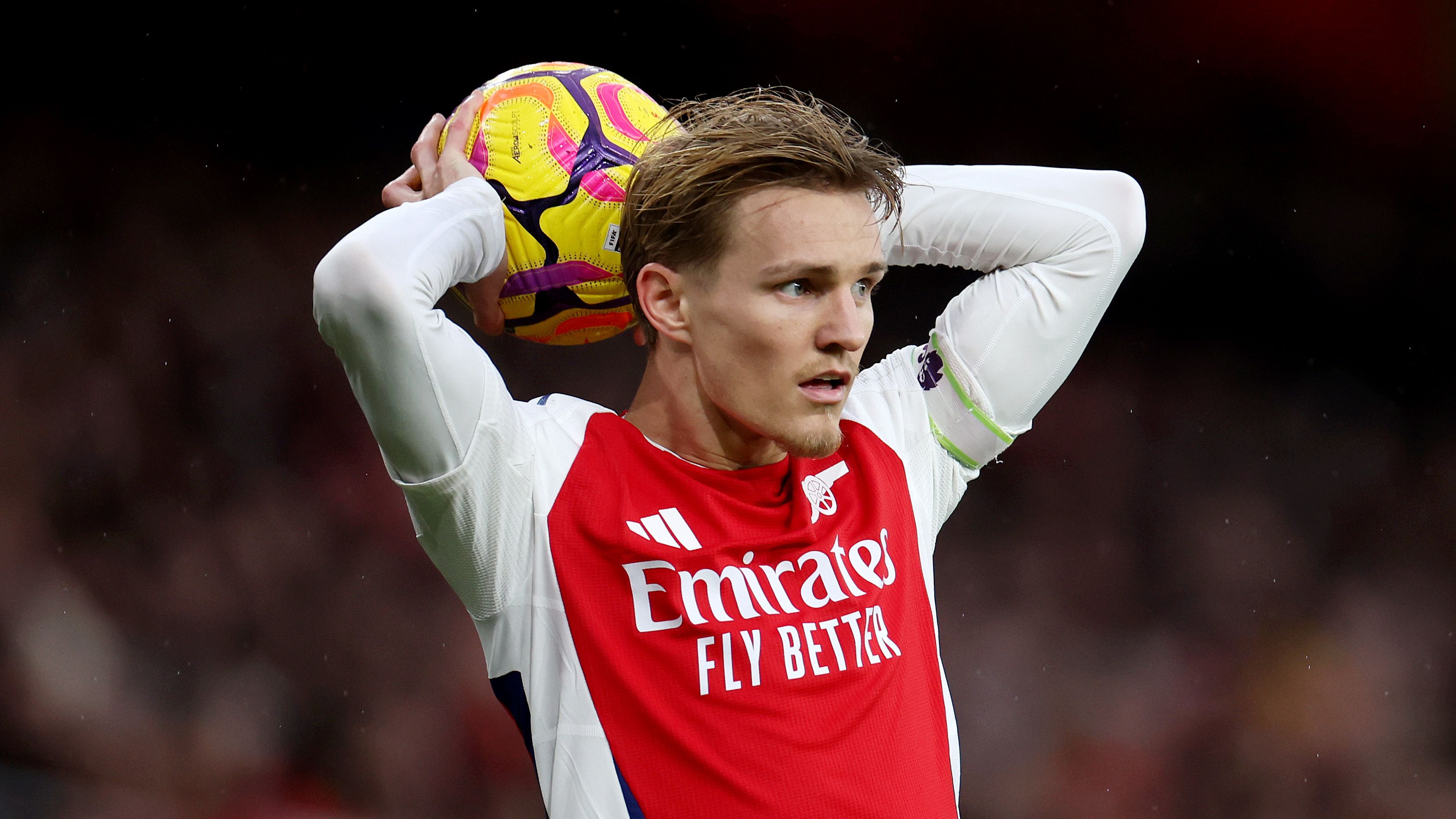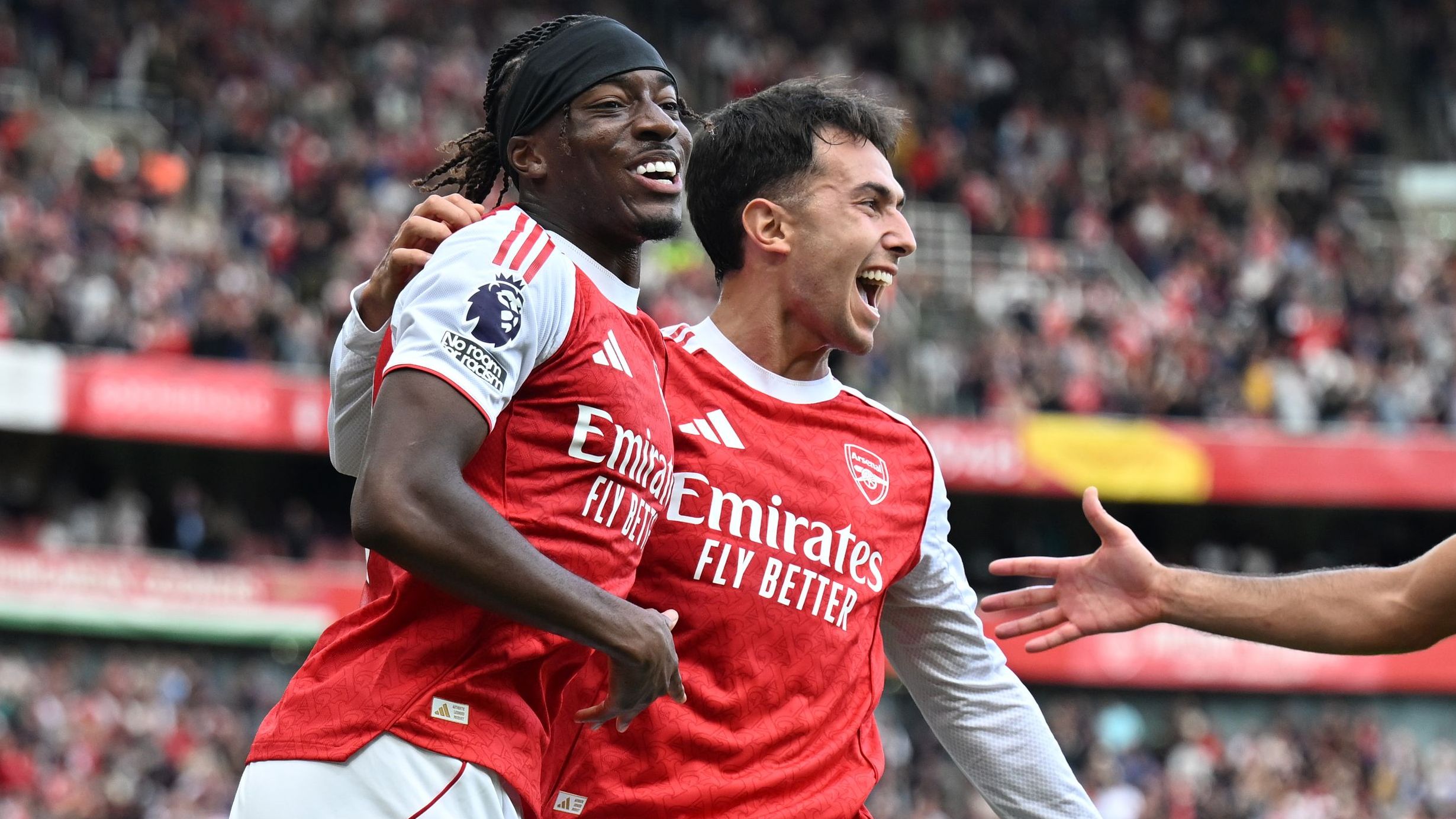


Is Arsenal’s Tactical Revolution Reshaping the Premier League for Better or Worse?
In a season where Arsenal‘s focus on set-piece execution and unyielding defense has propelled them to the top defensive rankings in the Premier League, sharing the fewest goals conceded at just three, former Tottenham standout and commentator Jamie O’Hara has stepped forward with sharp disapproval. Speaking on Sky Sports News, he argues that Mikel Arteta’s methods are not only dull but are also influencing teams league-wide, sparking a broader discussion on the essence of modern football tactics.
The Growing Backlash Against Arsenal’s Defensive Strategies
O’Hara has been vocal in his disdain, describing the approach as detrimental to the Premier League‘s vibrancy. When discussing extended throws, he remarked, “It’s unbearable, I despise it. This is destroying the sport, particularly the Premier League as a spectacle.” He likened the style to lower-tier matches, pointing to recent games like Tottenham’s, where the play revolved around territorial battles, headers, and repetitive throws that felt overly simplistic and lacking depth.
Why Lower-Tier Tactics Are Creeping into Elite Football
While O’Hara acknowledges that teams like Brentford might benefit from such plays to generate opportunities, he finds it baffling when top clubs adopt them. “Everything traces back to Arsenal; they pioneered this emphasis on long throws and set-pieces, and now it’s eroding the fluid, entertaining style that defines the Premier League.” Instead of compare it to watching amateur games, he suggests it’s like observing a basic training drill repeated endlessly, stripping away the excitement fans crave.
Deeper Concerns: The Shift to a More Fragmented Game
Expanding on his critique, O’Hara has targeted Arteta’s overall game plan, asserting that the Premier League has become monotonous due to the constant pursuit of set-piece advantages. He elaborated, “From a long throw, you’re just crowding the area, lobbing the ball in for a possible deflection or opening, but it’s tedious and reminiscent of grassroots football. We’re in the pinnacle of the sport, where teams should exemplify skill and innovation at every turn.”
When Is Tactical Chaos Acceptable?
He concedes that such moves might have a place sporadically, perhaps in the final minutes to stir up confusion, but not as a core strategy. “It’s all stop-go, halt-and-go, which disrupts the flow. Whatever happened to keeping possession, speeding up play, delivering precise crosses, or attacking from wide positions? Even managers like Thomas Frank at Tottenham are following suit, and I’m thoroughly against it-it’s undermining the league’s allure.”
Arsenal’s Response and On-Field Success
Despite the uproar, Arsenal demonstrated their effectiveness with a commanding 4-0 victory over Atletico Madrid in the Champions League. Arteta addressed the backlash post-match, emphasizing results over style. He noted to the media: “What’s most important here is the outcome. Our match preparations always aim to challenge opponents effectively, by deploying players with the ideal skills right from the start. Football is unpredictable-it succeeds some days and not others. Tonight, our precision was outstanding, a crucial element in this tournament, and I’m truly pleased.”
Looking Ahead: Ambitions and Adaptation
As Arsenal kicks off the season strongly, their sights are set on breaking a prolonged drought for the Premier League crown, having placed second in the prior three campaigns. With substantial reinforcements in the transfer window, including arrivals like Viktor Gyokeres, Martin Zubimendi, Eberechi Eze, and Noni Madueke, expectations are high for a genuine title push. Though early critiques have been plentiful, the team remains focused on delivering wins and silverware by season’s end, prioritizing substance over style.
The Controversy Surrounding Arsenal’s Tactics
Arsenal’s playing style under manager Mikel Arteta has sparked heated debates in the Premier League community, with critics accusing the team of undermining the league’s traditional excitement through what many call “boring football.” This criticism stems from Arteta’s emphasis on defensive solidity and controlled possession, which has delivered results but at the cost of entertaining, high-octane matches. Fans and pundits alike have pointed out how this tactical approach, while effective, is being widely imitated across the league, potentially leading to a more homogenized style of play.
What Critics Are Saying About Arsenal’s ‘Boring’ Tactics
One of the main grievances against Arsenal is that Arteta’s tactics prioritize pragmatism over flair, often resulting in low-scoring draws or tightly controlled games. For instance, Arsenal’s frequent use of a deep defensive block and quick counter-attacks has been labeled as overly cautious, diminishing the end-to-end thrill that defines Premier League football. Keywords like “Mikel Arteta tactics” and “Arsenal boring football” frequently appear in discussions on sports forums and analyses, highlighting how this style is seen as a departure from the league’s fast-paced heritage.
- Defensive Dominance Over Attack: Arsenal’s games often feature long periods of sideways passing and patient build-up, which some argue stifles creativity. This has led to accusations that the team is “undermining the Premier League’s spirit” by focusing on results rather than spectacle.
- Impact on Viewership: Surveys and fan polls suggest that matches involving such tactics can feel predictable, potentially affecting viewer engagement. For example, when Arsenal employs a low block against stronger opponents, it can turn games into tactical battles rather than free-flowing entertainment.
- Player Fatigue and Game Flow: Critics note that this style contributes to slower game tempos, with more interruptions for tactical fouls or set pieces, which might reduce the overall appeal for casual fans searching for “Premier League excitement.”
Mikel Arteta’s Tactical Philosophy and Its Evolution
Mikel Arteta’s approach draws heavily from his time under Pep Guardiola at Manchester City, emphasizing possession-based football with a strong defensive structure. This has evolved into what some describe as “widely imitated Arsenal tactics,” where teams focus on high pressing in key areas while maintaining shape to limit counter-attacks. Arteta has transformed Arsenal from a mid-table side into title contenders by instilling discipline and tactical awareness, but at what cost to the league’s diversity?
In recent seasons, Arsenal has seen success with this method, such as in their deep runs in domestic cups, but the style has drawn comparisons to “parking the bus,” a term often used for overly defensive play. This philosophy has been analyzed in depth by football experts, who point out keywords like “Arteta’s control football” as central to his strategy. While effective for winning points, it raises questions about whether it’s eroding the innovative edge that makes the Premier League stand out globally.
- Key Elements of Arteta’s System:
- Possession Control: Arsenal aims for at least 60% possession in matches, using short passes to probe defenses and minimize risks.
- Set-Piece Mastery: The team excels in corners and free-kicks, turning these into scoring opportunities through rehearsed routines.
- Counter-Pressing: Immediate recovery of the ball after losing it has become a hallmark, influencing how other managers adapt their own teams.
How Arsenal’s Style Is Being Imitated in the Premier League
The influence of Arsenal’s tactics under Arteta is evident across the Premier League, with several teams adopting similar methods to combat the league’s intensity. This imitation is often discussed in terms of “widely imitated Premier League tactics,” as managers seek to replicate Arsenal’s success in achieving consistency without relying on star players. For example, teams like Tottenham and Manchester United have experimented with high-press defenses and controlled transitions, leading to a ripple effect in the league’s tactical landscape.
This trend has sparked concerns that the Premier League could become less varied, with more clubs prioritizing “boring but effective football” over adventurous play. Pundits have noted that keywords such as “Arsenal influence on tactics” are trending in post-match analyses, indicating a broader shift toward strategic conservatism.
- Examples of Imitation:
- Mid-Table Teams: Clubs like Brighton have incorporated elements of Arsenal’s build-from-the-back style, focusing on patient possession to outsmart opponents.
- Top Rivals: Even powerhouses like Liverpool have adjusted their setups to include more defensive resilience, mirroring Arteta’s emphasis on squad depth and tactical flexibility.
- Long-Term Effects: This could lead to a “tactical arms race,” where innovation gives way to replication, potentially making matches feel more formulaic and less unpredictable.
The Debate on Undermining League Excitement
Arteta’s tactics have put Arsenal at the center of a larger conversation about what constitutes exciting Premier League football. While some argue that winning is the ultimate goal, others contend that this style is “undermining the Premier League” by reducing the variety of playstyles. Balancing defensive prowess with attacking flair remains a challenge, and this debate is enriched by ongoing discussions in football media.
To address these concerns, managers might need to innovate further, blending Arsenal’s disciplined approach with elements of creativity. Keywords like “Premier League tactical evolution” highlight how this issue is evolving, encouraging fans to engage with the deeper strategic aspects of the game.
- Pros of Arsenal’s Tactics:
- Enhances competitiveness by making games more strategic.
- Provides a blueprint for smaller teams to challenge bigger budgets.
- Reduces high-scoring blowouts, leading to closer contests.
- Cons and Potential Solutions:
- May alienate fans seeking entertainment, as seen in declining attendance at some “low-action” games.
- Encourages a copycat culture; solutions could include coaching mandates for more attacking play or rule changes to promote faster football.









